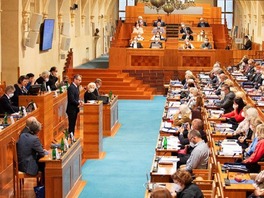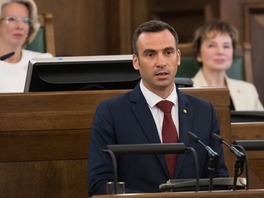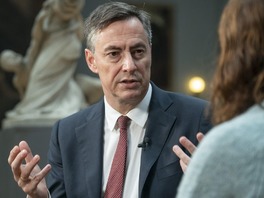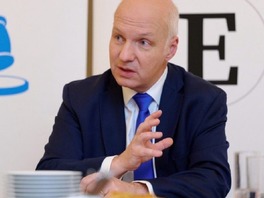The heads of foreign affairs committees from the parliaments of the United States, Europe and Ukraine made a joint general statement criticizing the Russian gas pipeline Nord Stream 2.
This is stated in the text of the joint statement of the Foreign Affairs Committee of the U.S. Senate, which is publishedon the website of the head of the U.S. Senate Committee on Foreign Relations, Chairman Bob Menendez.
It is noted that the chairmen of the committees on international affairs of parliaments continue to oppose the construction of the gas pipeline and regret the recent decision of the United States and Germany to resume the project.
“We, the Chairs of Foreign Affairs Committees of our respective national parliaments, continue to oppose the Nord Stream 2 pipeline project and with regret note the recent decision of the United States and Germany on Nord Stream 2, which entails resuming completion of the pipeline.We consider Nord Stream 2 a geopolitical project geared towards expanding Russia's influence on Europe by dominating the energy market. The completion of the pipeline will strengthen the impact of Russian gas in the European energy mix, endanger the national security of EU member states and the United States, and threaten the already precarious security and the sovereignty of Ukraine,” the statement reads.
The Chairmen touched upon the issue of Ukraine's security and the recent developments in Donbas.
“Moreover, the completion of NS2 will give Russia yet another tool to pressure and blackmail Ukraine. It continues to face Russia's brutal aggression and military occupation of its territories because of its pro-European choice. As a result, over 14,000 Ukrainians have died, and every week, more Ukrainian soldiers give their lives to protect their homeland and entire Europe. The EU and United States must work together to increase sanctions pressure on the Kremlin to counter aggression in Ukraine,” Chairmen emphasized in the statement.
It was also pointed out that the completion of the project will strengthen the influence of the Russian Federation of Europe and will increase European energy dependence on Russian gas, endangering the national security of the EU and member countries.
“The likely repercussion of the completion and operation of Nord Stream 2 is to undermine the development of a single, liberalized, and open European market by consolidating sources of supply in the Nord Stream 2 system and deterring investment in alternatives. We expect a clear commitment from Germany to reduce dependency on gas imported from Russia and move towards green energy. We presume that Germany will handle its responsibility towards these goals with the utmost dedication. We need to make a collective commitment to increase support to the security and defense capabilities of Ukraine in order to prevent a deepening of the current security crisis, exacerbated by the threats created by Nord Stream 2,” the statement reads.
In addition, the chairmen called on North-Atlantic Alliance to strengthen deterrence and contribute to the creation of a secure environment in the region.
“In the changing security environment in the region, we call for commitments from NATO to strengthen deterrence, especially on the Eastern Flank from the Baltic Sea to the Black Sea. We also need to commit to delivering a road map for Ukraine's path towards joining the NATO alliance, if Ukraine makes the necessary reforms and meets NATO membership standards. To consolidate the transformation efforts of the Ukrainian government as well as democracy and human rights in the region, we call for a European Union membership perspective to be agreed upon for Ukraine,” the message reads.
Lawmakers insisted that any future Nord Stream 2 agreements should include consultations within transatlantic institutions.
“We insist that any further agreements on Nord Stream 2 necessitate consultations across the transatlantic family. Moreover, such diplomacy should happen with the fundamental principle in mind - countering malign Russian aggression is in all of NATO's, all EU members, and our partners in Central and Eastern Europe vital national security interests," parliamentarians demanded.






